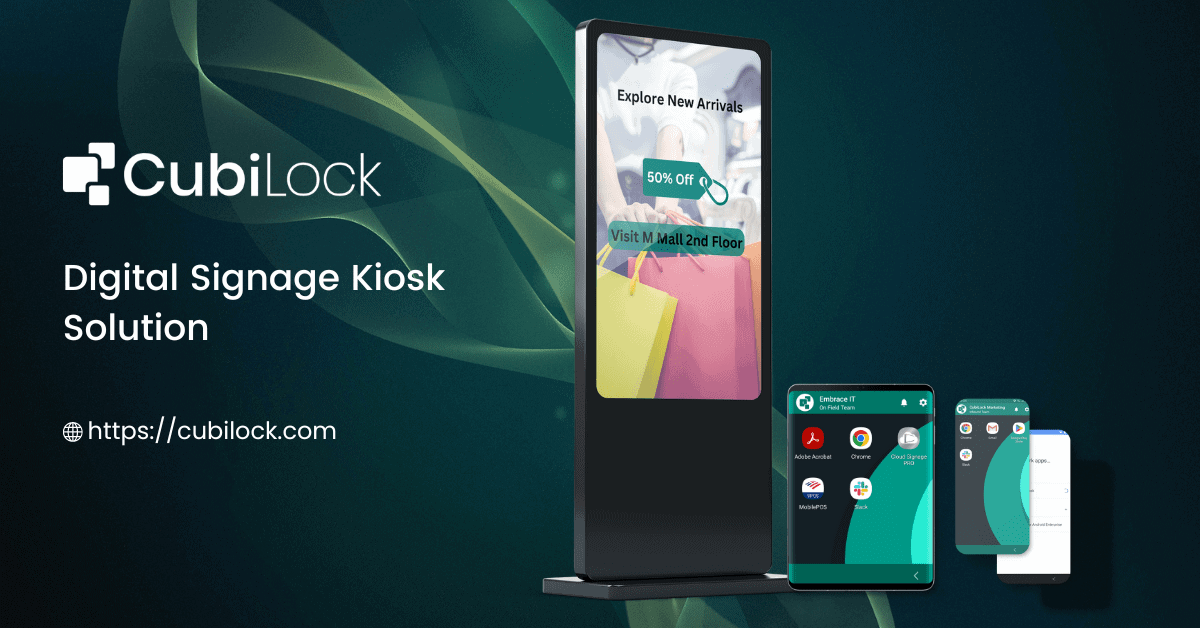Education has undergone a revolution with the move to digital tests, but these changes have also created new difficulties in maintaining academic integrity. Equal opportunity for all students must be guaranteed. Enter kiosk lockdown mode, a useful feature that limits device capability when taking tests. Kiosk mode protects academic integrity by limiting communication options, preventing access to other resources, and improving test oversight. It protects against cheating, encourages impartiality, and gives teachers the assurance they need to administer tests. Kiosk mode is essential in the modern era for sustaining the fundamentals of academic integrity and fairness.
Challenges to Academic Integrity in Digital Exams
The incidence of cheating on digital tests has raised serious questions. Students are tempted to seek outside help during tests due to the simplicity of access to internet resources. Traditional exam proctoring techniques that rely on live invigilators are no longer 100% reliable. They frequently fail to stop other types of academic dishonesty, such as using covert notes or interacting with classmates. This expanding issue highlights the urgent need for a more secure and cutting-edge system that can successfully prevent cheating and safeguard the integrity of academic assessments.
Institutions are using innovative methods like kiosk mode to overcome the problems with conventional proctoring. With the protected digital environment that this cutting-edge technology offers, academic dishonesty is less likely to occur. In the digital era, kiosk mode is crucial for guaranteeing academic integrity since it limits access to other resources and keeps an eye on students during tests. It offers a potential answer for educational institutions attempting to uphold fairness and credibility in their evaluation procedures due to its adaptability and efficacy.
How Kiosk Mode Addresses Academic Integrity Concerns
By restricting websites and apps that may be used for cheating, kiosk mode effectively limits access to outside resources during digital tests. Additionally, it stops students from pasting data from unauthorized sources, delivering a safe and integrity-focused testing environment.
In order to preserve a fair testing environment and support academic integrity during digital tests, kiosk mode restricts cooperation by switching off communication capabilities and lockdown screen sharing. This prohibits students from exchanging answers or interacting with classmates.
Implementing real-time surveillance and incorporating remote proctoring technologies are two ways to improve test monitoring. While remote proctoring integration delivers improved monitoring tools to assure academic integrity in digital assessments, real-time surveillance enables ongoing student monitoring during tests.
Benefits of Implementing Kiosk Mode in Digital Exams
The use of kiosk mode in digital tests has numerous important benefits. You can use the kiosk browser lockdown solution. It helps you by limiting access to other sources, eliminating cheating, and boosting the general integrity of the assessment process, it considerably increases exam security in the first place. Second, it encourages justice and fairness among all students by guaranteeing that everyone is evaluated under the same circumstances, regardless of location or device.
Additionally, by automating monitoring chores, kiosk mode lessens the strain on exam proctors and frees them up to concentrate on other important parts of exam administration. Finally, it promotes confidence in the evaluation process by prioritizing and maintaining student privacy by restricting data gathering and guaranteeing a secure testing environment.
Best Practices for Implementing Kiosk Mode in Academic Settings
When introducing kiosk mode for digital examinations, it is crucial to prepare both students and instructors. Students’ understanding of the kiosk mode’s significance in maintaining academic integrity is ensured by providing them with information on its purpose and guidelines. To efficiently give tests in this format and ensure a smooth procedure, faculty members need training.
A suitable kiosk software, such as CubiLock Kiosk Lockdown Mode, offers strong security measures and user-friendly interfaces that meet the unique requirements of the institution.
Each exam’s kiosk mode settings may be tailored to meet the needs of the assessment, whether that means banning particular websites, restricting application access, or modifying time limits.
The kiosk software is also regularly updated and maintained to ensure that it is always current and effective in thwarting developing cheating techniques and ensuring test security.
Conclusion
Kiosk mode is revealed to be a crucial protection for maintaining academic integrity. It improves impartiality, lessens proctors’ effort, and decreases cheating by restricting access to outside resources. We enjoin educational institutions to use this technology in light of its potential to ensure that all students are on an even playing field. By doing this, they can protect the integrity of evaluations and promote an ethical and just educational atmosphere. The implementation of kiosk mode not only safeguards digital tests in the present but also sets the path for a more reliable and fair system of grading in the future.


